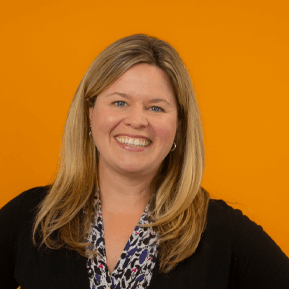PIN Points
The World of 7 Billion encourages students to explore how population growth impacts a global challenge.
Students research one of three topics, namely agriculture and food, urbanization, and ocean health, and submit a 60-second video with their solution.
NEIA innovators in grades 9 and 10 participated in the contest as a way to express themselves through a new medium and propose sustainable solutions.
Kayla Vallecillo, a grade 9 student, was named a top 10 finalist for research and video submission detailing Urban Heat Islands.
To raise awareness around the challenges that extreme population growth presents, NEIA Innovators participated in the World of 7 Billion contest. Kayla Vallecillo, a grade 9 student, was named a top 10 finalist for her project on Urban Heat Islands. Students worldwide choose a topic and propose an idea for a sustainable solution in a quick 60-second video.
Population growth makes other problems worse and that much more challenging to solve. The World of 7 Billion encourages students to explore how population growth impacts global challenges by researching one of three topics, namely agriculture and food, urbanization, and ocean health.
As Kayla learned through her research, urban heat islands are significantly warmer areas than their surroundings due to dense concentrations of pavement, buildings, and other surfaces that absorb and retain heat. Urban heat islands disproportionately impact low-income neighborhoods and communities of color.
“In the past, I always looked at heat as something that occurs due to global warming, but there’s much more to it in reality,” said Kayla. “When you live in an area with fewer resources, you are not as safe as people who have the resources and money to protect themselves from heat. I didn’t realize the extreme effect rising temperatures can have on disadvantaged people.”
Kayla’s research and thoughtful assessment enabled her to provide a series of very clear action steps. While she enjoyed researching urban heat islands, the project also offered her an opportunity to learn about video editing, animation, and statistics.
“It was a challenging project due to time constraints, but very rewarding to see the project come to life and learn how to express my ideas and use statistics creatively and artistically,” said Kayla. “I struggled to shorten my script and had to make sure there was a lot of meaning in each statement and make it accessible to anyone watching it.”
NEIA innovators in grades 9 and 10 participated in the World of 7 Billion contest. John Camp, Head of Teaching and Learning and Humanities Teacher, led the project as a way to encourage students to express themselves through a new medium.
“Through the research process, Kayla worked diligently to hone her specific topic on urban heat islands. She also adapted feedback well, through a cycle with five peers and two teachers. I’m thrilled to see her rewarded for her hard work,” said Camp. “All of our innovators should be proud of their work on this project. It was challenging to condense their research into just 60 seconds, and everyone developed their research and editing skills.”
Camp required the submissions to include a cited list of sources. He also encouraged students to review each other’s work to provide feedback and reflect on the clarity of the issue and the solution that students presented.
“It was really helpful to get feedback from my peers during the project,” said Kayla. “Other students provided tips on the audio and shared their thoughts on the animation I used.”
Population growth is a threat multiplier – it makes other problems worse and more difficult to combat. Through the World of 7 Billion student video contest, middle and high schoolers are given the platform to think critically about global challenges related to population and share what they think we should do to fix them. The World of 7 Billion contest is a project of the Population Education program, a provider of K-12 classroom resources and professional development opportunities.

